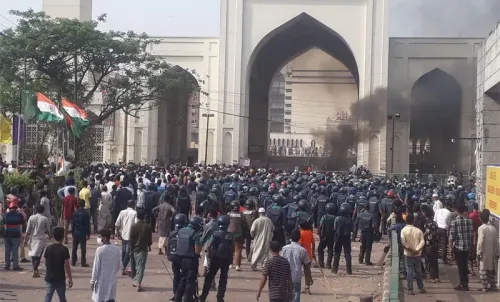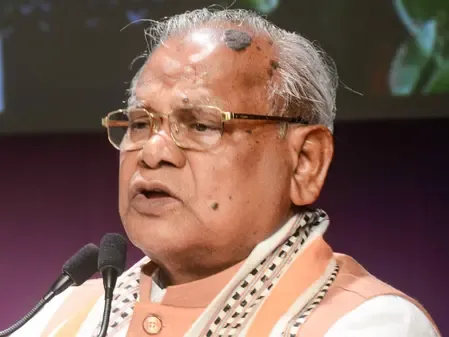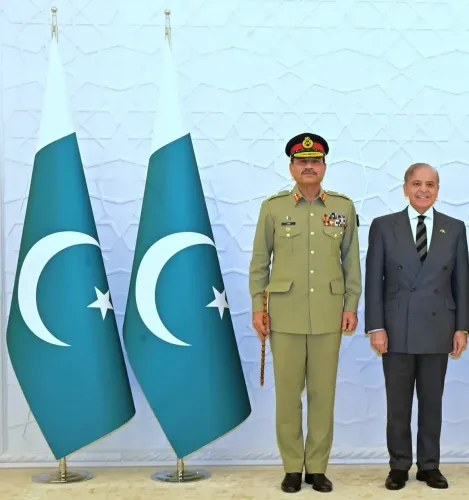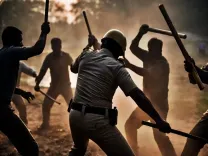Why Did a South Korean Court Reject Ex-President Yoon's Arrest Appeal?
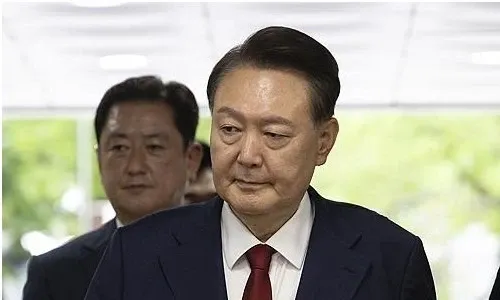
Synopsis
Key Takeaways
- Former President Yoon Suk Yeol remains in custody.
- The court dismissed his petition against arrest.
- Serious allegations include his attempt to impose martial law.
- The special counsel's investigation continues.
- Yoon has threatened to boycott future hearings.
Seoul, July 18 (NationPress) A court has ruled against the former South Korean President, Yoon Suk Yeol, dismissing his petition to contest his arrest, thereby keeping him in detention due to his unsuccessful attempt to impose martial law.
The Seoul Central District Court reached its decision shortly after concluding a hearing that assessed the validity of Yoon's arrest and whether it should remain effective.
"After reviewing the suspect's statements alongside the case documentation, we found the request to be baseless and subsequently dismissed it," the judges stated.
The ousted leader had sought a review on Wednesday, just days after being detained at the Seoul Detention Center in Uiwang, located south of the capital, concerning five significant charges linked to his martial law proposal from December.
The confidential hearing commenced at 10:15 am and lasted about six hours, during which Yoon's defense team and special counsel Cho Eun-suk's representatives provided opposing arguments for his release.
Yoon's legal team contended that the criminal allegations against him are unfounded and that he poses no threat of tampering with evidence, as reported by Yonhap news agency.
They particularly emphasized that the five main accusations referenced in the arrest warrant—including the alleged infringement of Cabinet members' rights and the alleged fabrication of a martial law document—are already encompassed within the insurrection charge for which Yoon is currently being prosecuted.
Yoon also spent 30 minutes discussing his declining health.
"His liver condition is quite severe, and he presented relevant medical documentation, explaining his mobility issues," stated Yoo Jung-hwa, one of Yoon's attorneys, to the press after the hearing.
However, the special counsel team argued for his continued detention, asserting that all five charges could be substantiated and categorized as serious offenses.
They also expressed concerns regarding the possibility of Yoon influencing witness testimony or destroying evidence.
Yoon arrived at the courthouse around 9 am and was directly taken to a holding cell, avoiding interaction with the media.
After the hearing, he returned to the detention facility and is expected to remain there for several additional days, as the duration of the review does not count towards the initial ten-day arrest period.
The special counsel is anticipated to decide soon whether to attempt to compel Yoon for further questioning or to move forward with an indictment without additional interrogation.
Since his recent arrest, Yoon has resisted the special counsel's requests for questioning and has skipped two sessions of his insurrection trial, even threatening to boycott all future hearings unless Cho's team is excluded from the courtroom.
This marks Yoon's second arrest; he was previously detained in January but was released in March after a court agreed to annul his arrest.


